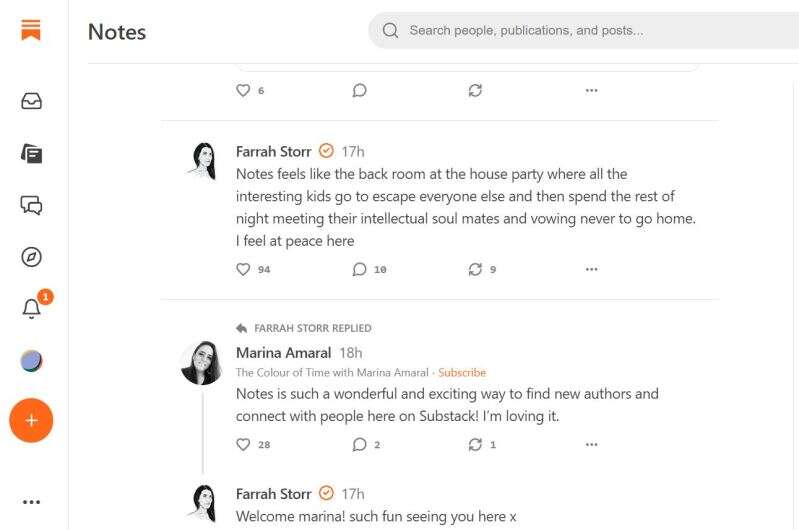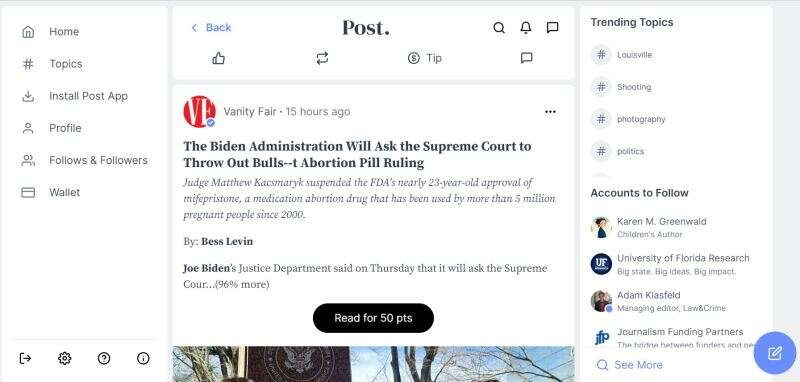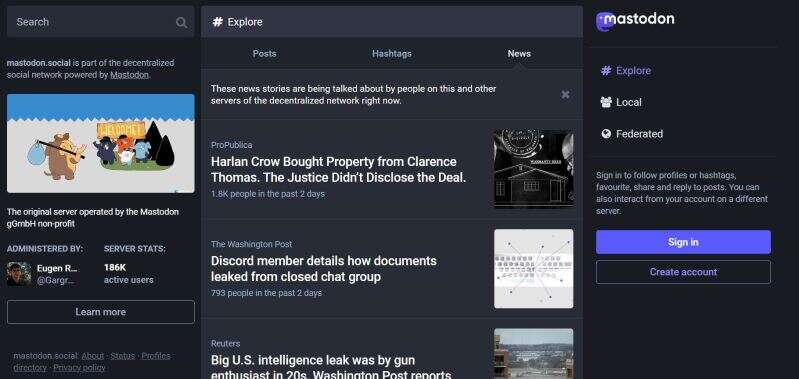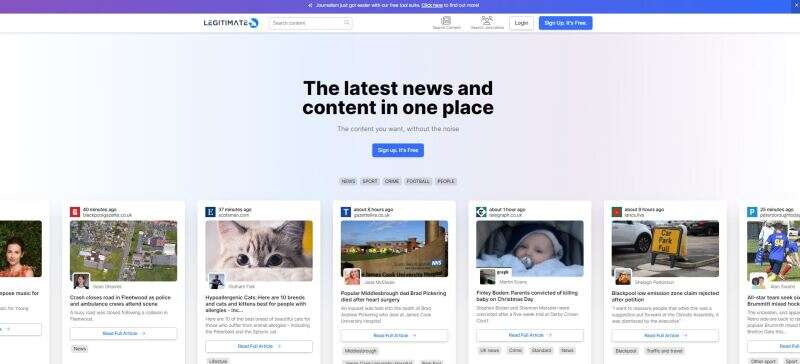
Publishers and journalists have begun to question whether Twitter is worth the hassle in the light of several controversial decisions led by the platform’s new owner and chief executive Elon Musk.
The brief decision last week to stop people from being able to share links to newsletter platform Substack resulted in some writers expressing worry that Twitter could stifle their ability to earn a living by sharing their work and building their cross-platform profile.
Now US news outlets NPR and PBS decided to stop using Twitter in response to being inaccurately labelled “government-funded media” on their pages. The BBC was also given this label, but it has since changed to “publicly funded media” following an interview with Musk conducted by its North America technology reporter James Clayton.
Meanwhile, Musk has stripped the New York Times of its gold tick, which indicated it was a verified organisation after the publisher said it would not pay for the privilege. (A £1,140 or $1,000 a month price tag for the verified organisations scheme is now rolling out.)
With it becoming costly for both news organisations and journalists to verify themselves on the platform, and less effective anyway since anyone can pay to be verified, there are rising fears that fake accounts and posts could increasingly mislead users.
In this context, there are several Twitter alternatives lining up, each with a different core purpose, that want to fill at least some of the role of Twitter for journalists, publishers and wider users. Here is a breakdown of some of the key platforms to keep an eye on.
Substack Notes
Aimed at individual writers rather than publishers more widely, Substack Notes is the new addition to the market that prompted Elon Musk to briefly stifle the sharing of links to the newsletter platform on Twitter.
American culture critic Ted Gioia, who has a Substack with 57,000 subscribers, wrote about why Musk’s games could mean the new competitor wins out among writers: “I really don’t want to be forced to choose between Twitter and Substack. But if I am, I will make my home at Substack, which is very supportive of writers and doesn’t play any of these authoritarian or manipulative games.”
Even one-time Musk ally Matt Taibbi, one of the journalists who the billionaire trusted to publish the Twitter Files about the platform’s previous content moderation decisions, made clear he would choose Substack over Twitter, writing: “Since sharing links to my articles is a primary reason I come to this platform, I was alarmed and asked what was going on. I was given the option of posting articles on Twitter instead. I’m obviously staying at Substack, and will be moving to Substack Notes next week.”
Substack Notes essentially allows writers with a Substack newsletter, and other users, to publish shorter posts in a dedicated Notes feed.

People are slowly experimenting with Notes at the moment, in a way reminiscent to the early days of Twitter and Facebook posts. For example, former Times columnist David Aaronovitch simply wrote on Tuesday: “Hello, Notes! What’s going on?”
Substack said Notes would help the discovery of content on the platform by easily allowing people to share links and thoughts about what they have read. “As well as being lightweight and fun, we hope that Notes will help writers grow their audience and revenue,” it said.
In some ways, it is similar to Twitter’s user interface, with the ability to “restack” a Note – meaning hitting a button to share it either as it is or with an added comment, not unlike retweets and quote tweets.
However, Substack’s founders say the crucial difference is the fact its model is based on subscriptions rather than advertising: “The ultimate goal on this platform is to convert casual readers into paying subscribers. In this system, the vast majority of the financial rewards go to the creators of the content.”
Post
Post specifically bills itself as a “social platform built for news” that can help “premium publishers meet and monetise new audiences on social media”, with the URL post.news.
It says publishers can monetise their content using micropayments, giving them the option to charge small amounts via a “points” system to read articles on Post and ad-free. Publishers can choose how many “points” each piece of content is worth with, for example, Vanity Fair charging 50 points for a long-read feature and USA Today asking for three for a news story. People can also leave tips.
Co-founder Noam Bardin, who previously founded the traffic app Waze, told Tech Crunch he believed people would be prepared to pay to read content in Post even if it is free on the publisher’s own website because it would be a better reading experience.
“We think that with a great user experience, the right pricing and the lack of friction, we can add a new business model to the world of ads [or] subscription,” he said.

The platform fully launched to the public this month, having previously limited its numbers under its initial beta period.
USA Today became the first publishing partner on Post in January and others signed up now include Reuters, Fortune, Los Angeles Times, San Francisco Chronicle, Semafor, Reuters, Pro Publica, and Hearst Newspapers.
[Read more: USA Today ‘first major publishing partner’ on Twitter alternative Post]
In its mission statement to publishers, Post says it believes it can be a “cure for subscription fatigue” and offer “social media natives a pay-as-you-go model that fits the way they read the news and expands reach”. It also claims to have a “rigorous, robust moderation” policy.
Mastodon
Mastodon received a lot of attention and a spurt of new users in October and November after Musk’s initial takeover of Twitter. The platform has now reached about 11 million users, although its growth has slowed down.
Unlike Twitter’s centralised feed, Mastodon operates with a decentralised model that allows users to create their own servers or join one specific server as their base. Journalists could therefore, for example, sign up to a journalism-centric server but also post elsewhere.
January’s Journalism, Media, and Technology Trends and Predictions 2023 report from the Reuters Institute for the Study of Journalism saw Mastodon named as the second most popular alternative to Twitter among named options in the event of its “potential implosion”. Some 42% of the news leaders surveyed said Linkedin would be a good replacement for Twitter, followed by 10% who said Mastodon and 7% who said Facebook.
However, Wolfgang Vichtl, chief correspondent at ARD in Germany, told the survey: “There is no replacement for the ‘old’ Twitter. The idea was genius. Mastodon is not a replacement.”
Some of the news bosses who had already tried out Mastodon found it empty and fragmented without enough new users to make it worthwhile yet, although Ethan Zuckerman, associate professor at the University of Massachusetts, suggested smaller, decentralised networks with the interests of their users at the centre could be the way forward.
Users of the Reddit community dedicated to talking about Mastodon recently debated whether it had stalled and was not managing to stay relevant. But one user argued: “Mastodon is not just a drop-in Twitter replacement. It is its own thing with its own community and user base.
“Of course it has a future. It’s been chugging away happily for years. That it didn’t immediately supplant and replace the world’s biggest microblogging service in November doesn’t mean it’s dead.
“Mastodon has got issues with user retention for people coming over from Twitter, but frankly that’s because Twitter has a huge network effect and Mastodon does not. If 90% of your friends stay on Twitter, you need to use Twitter to talk to them. If Twitter were to fall over completely for some reason (as well it might given its leadership), that might change.”

However more pertinent to publishers may be the decision made by the Alphaville team at the Financial Times in January to close its Mastodon server after a few months.
Alphaville’s City editor Bryce Elder explained that the platform “proved more hassle than it’s worth” for several reasons, including compliance, security and reputational risks that worried top management, other potential legal implications including who is responsible for any defamatory posts published on their server, and the amount of work required including “daily backups, layer caching, downtime monitoring, load balancing, and a bunch of techy stuff…”
However, others are considering platforms like Mastodon as a potential subscription perk. Last month Medium opened up its own server to all paying Medium members, saying it would provide them with an extra way to share their work and short-form thoughts with like-minded people.
Legitimate
The new workflow management platform Legitimate is keen to be somewhere journalists they can build their “personal brand” as many have done through Twitter – but with the latter platform no longer offering journalists free verification, it believes this is a trust gap it can fill.
It claims to be used by journalists from publications including Insider, City AM, the Wall Street Journal, Express.co.uk, and the Irish Independent and says one of its benefits is the ability for writers to showcase their work.
It tells journalists it can help them “grow an audience and build a brand” – readers are also able to specifically follow journalists to keep up with their work.
A content page features journalists and publishers posting content with links to their websites, as well as the functions for a bookmarks folder and sorting by topic. It says it wants to be a “verified search engine”: “Our aim is to become the first place people look to when they want to see a variety of news from different sources without the worry of fake news or bad actors.”
Co-founder Gerard Donnelly told Press Gazette in an email: “We built Legitimate to provide a suite of tools specific to journalists and aim to provide a trustworthy and reliable means of verification for them as well. Our platform allows journalists to showcase their work in a centralised location, providing a clear and comprehensive picture of their experience and body of work.
“In a time when social media platforms are charging for verification, we believe that our approach is a much-needed alternative, especially for journalists, who by default should be benefiting from verification and additional support on these platforms.”

And one user, David Clinch, co-founder of Media Growth Partners, told Press Gazette: “I have been working with the team at Legitimate for a while, as part of a process of building a network of media technology companies that provide essential tools for journalists, and I find their approach to providing a form of verification for journalists via their own body of work very interesting at a time when social media platforms are charging for verification.”
Journalists can also run a blog on the platform, which promises to “always” stay free. “Legitimate wants to empower journalists, help the journalism community grow stronger and fight back against the threat of disinformation,” it said.
Email pged@pressgazette.co.uk to point out mistakes, provide story tips or send in a letter for publication on our "Letters Page" blog
